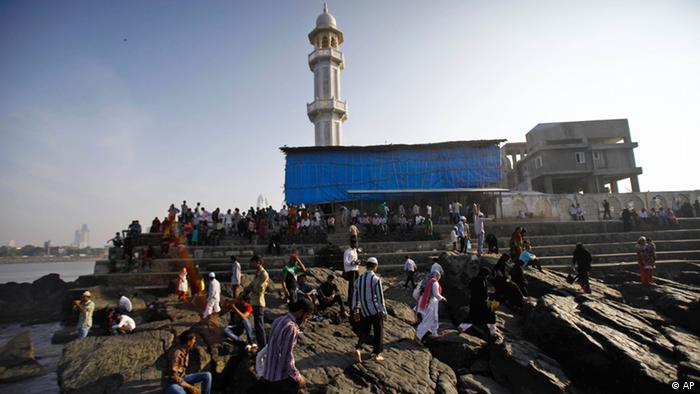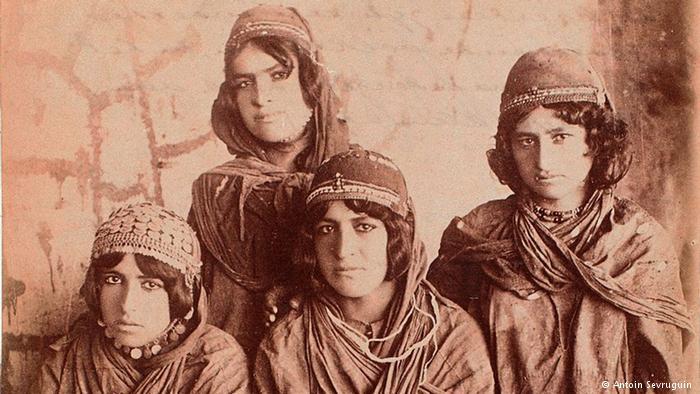The Fatwa retailers

The Haji Ali shrine in Mumbai has banned the entry of women
Darul Uloom Deobandi, an Islamic seminary in Uttar Pradesh, India, recently warned Muslim women not to work as receptionists by issuing a Fatwa (Islamic religious ruling) that terms of the the job are un-Islamic and against the Sharia (Islamic law). Meanwhile, the Muslim chief of a village council in Bihar, India, has also barred women from using mobile phone due to fears of pre-marital or extramarital affairs which may lead to elopements and the moral decline of that community. This is the twenty first century and what women should do or should not do is being decided by the centers of prejudice, dogma and misogyny. Wow!
Since a Fatwa is a non-binding entity it cannot be enforced as a law on all Muslims. Fatwa are to seek religious “guidance”, that too of a “qualified” scholar, while the compliance to the scholar’s edict is up to the discretion of the inquirer. Despite the debatable nature of Fatwas, public opinion is easily maneuvered by the Fatwa-hurling mullahs due to lack of knowledge and an abundance of faith.
As for the Deobandi Fatwa, it was actually issued in response to a Pakistani firm’s query while the Bihar decision was purely preemptive move to ‘save his clan from perversity’ and ensuing social degeneration. What both incidents share is an underlying insecurity of Muslim men who seem as paranoid of the opposite sex as they are of the opposite faiths and their “anti-Islam, secular and modern” agenda.
From a Pakistani perspective, the politicization of Fatwas by the clergy may have serious consequences, given the ideological predominance of the Deobandi School of Islam which branches out into Wahabism, Salafism and the Taliban. It may make the life of Pakistani women hell if they ever resisted following the path which, according to the mullahs, leads to heaven. Such a Fatwa-driven society can even bar women from going to schools, hospitals, markets or even restrooms without the permission of their family men.
These threatening decrees issued in the garb of Fatwas are aimed more at curtailing the freedom of women. Whenever the semi-literate clerics or the Ulema are challenged by politically-aware and socially active women, a Fatwa comes in
handy. Pakistan’s prominent human rights advocate, Asma Jehangir, has faced so many religious edicts against her political activism. Malala Yousafzai is a recent addition to the list of Pakistani women, condemned by the mullahs, along with the likes of Sherry Rehman, Pakistan’s ambassador to the US, who had received death threats and a Fatwa against her ‘anti-shariah’ advocacy for the repeal of Pakistan’s notorious blasphemy law.
Non-Muslim women, too, are persecuted through religious rulings, as any cleric who occupies a mosque can spin deadly Fatwas against them. When the Christian woman Asia Bibi was allegedly charged with blasphemy, a cleric in Peshawar issued a decree to kill her by declaring her an infidel. The decree prompted threats to the wretched woman’s life and a general consensus on the legitimacy of her death penalty. Rimsha Masih, another Christian girl accused of blasphemy, also garnered varied sickening Fatwas by Social Media users who suggested the best possible punishments for the infidel teenager.
Religious scholars in India too offer a fair supply of Fatwas to Indian Muslims. Muslim clerics keep using their rulings against the dress, marital status and religious devotion of Indian tennis star Sania Mirza. Pakistani actress Veena Malik, known for upsetting mullahs at home, also intrigued the Indian Muslim clergy which issued an edict against her for degrading the sacred institute of ‘marriage’ by agreeing to choose her groom on a reality show. It was Dar Ul Uloom Deoband, the leading Fatwa authority in South Asia, which forced the Indian government to stop author Salman Rushdie from attending the Jaipur Literature Festival. These religious scholars were allegedly involved in a cash-for-Fatwa scam when an Indian TV channel exposed clerics of Dar Ul Uloom taking bribes for issuing Fatwas.
This is just a glimpse of how the Fatwa mills churn out decree after decree in a Muslim society to fool the public and legitimize their existence. The Fatwa-manufacturing seminaries and their affiliates are an embarrassment and nuisance for those Muslims who are striving hard to stick to their faith in a world resounding with the collision of Islamophobics and Islamophiles.
Author: Duriya Hashmi
Editor: Manasi Gopalakrishnan






